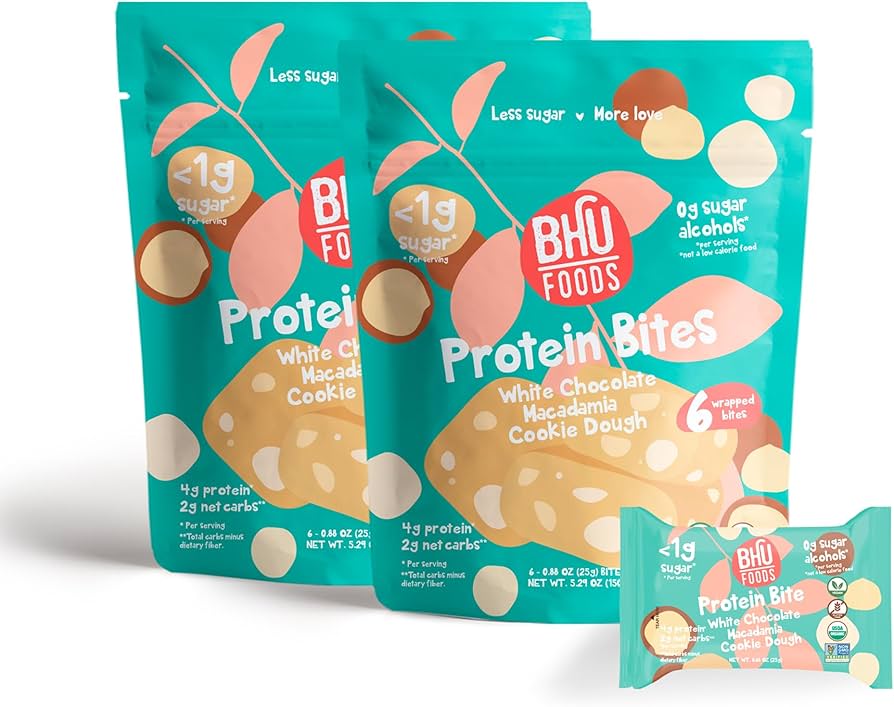Top 5 Practical Allulose Keto Options for Your 2025 Diet
The rising popularity of **allulose** as a **keto sweetener** is transforming the landscape of low-calorie eating in 2025. Allulose presents a fantastic *sugar substitute* that fits perfectly within a **keto diet**, offering a guilt-free indulgence that many are eager to explore. Here, we will delve into the top five practical uses of allulose, focusing on its numerous health benefits and its adaptability in daily cooking. By integrating it into your diet, you can enjoy delicious flavors while sticking to your nutritional goals.
What Makes Allulose a Keto-Friendly Sweetener?
Allulose is gaining significant attention for being a **non-glycemic**, low-calorie alternative. One of the standout benefits of food sweetened with allulose is its extremely low impact on blood sugar levels. Unlike sugar and many traditional sweeteners, allulose is processed differently by the body, making it ideal for those on a **low carb** or **sugar-free diet**. Its unique properties also make it suitable for those managing metabolic health or dealing with diabetic conditions. Additionally, it’s considered a **healthy sugar alternative** that does not contribute to tooth decay, making it an excellent choice for all age groups.
Understanding Allulose's Nutritional Profile
An intriguing aspect of allulose lies within its nutrition facts. One tablespoon of allulose contains only about 5 calories, with minimal carbohydrates. This low-calorie content fuels the growing popularity among **health-conscious eaters** seeking satisfying sweetness without the guilt typically associated with regular sugars. Furthermore, when substituting allulose for sugar in recipes, many find that it provides more sweetness per gram than sugar itself, necessary for anyone striving to maintain a **sugar-free lifestyle** while still enjoying sweetness in beverages and desserts.
How Allulose Compares to Other Sweeteners
When comparing **allulose versus sugar** and other low-cal sweeteners like erythritol or stevia, allulose stands out for its similar flavor profile to regular sugar without the undesirable aftertaste associated with artificial sweeteners. Unlike **sugar alcohols**, which may sometimes cause digestive discomfort, allulose is generally tolerated well, making it a leading choice for those looking for a safe, enjoyable sweetening solution.
Practical Allulose Applications in Cooking
The versatility of allulose opens a plethora of possibilities in meal preparation and baking. Whether you are crafting **keto-friendly desserts** or cooking savory dishes, allulose can effortlessly integrate into your recipes. By replacing regular sweeteners with allulose in baking or cooking, one can create a delightful range of **low-calorie treats** without sacrificing flavor or texture.
Sweetening Beverages with Allulose
Allulose serves as an excellent sweetener for beverages, providing a delightful sweetness to coffee or tea. When using **allulose for coffee**, simply stir in your desired amount until fully dissolved. Not only does it sweeten effectively, but it also adds body without the extra calories typically associated with creamers or sugars. This makes it an essential component for those embracing a directory of **keto snacks** and beverages that fit a low-carb lifestyle
Baking Tips with Allulose
Baking with allulose requires a slightly different approach due to its unique properties. Unlike traditional sugars that caramelize, **baking with allulose** often results in a chewy texture. For those unfamiliar with using allulose, start by substituting only a portion of the sugar called for in recipes. An adjustment like using 2/3 cup of allulose to replace one cup of granulated sugar can yield delightful results. Recipes for **guilt-free desserts** like cheesecake or low-carb brownies can now be created, allowing those on keto diets to satisfy their sweet tooth without the carb overload.
Allulose Recipes to Try
Incorporating allulose into your cooking can be as creative as it is rewarding. Here are a few quick and simple recipes that showcase the delightful balance of flavors achievable with allulose. From breakfast to dessert, these options cater to various preferences while keeping your keto goals in mind.
Allulose Lemon Bars
These **allulose recipes** for lemon bars are refreshing and decadent. Use almond flour for the crust mixed with allulose to create a low-carb base. The filling made with egg, lemon juice, and more allulose creates a zesty explosion, allowing you to enjoy a citrusy dessert without devastation on your diet. They're simple to make and perfect for a treat or a family gathering.
Low-Carb Chocolate Chip Cookies
When craving something sweet, try these low-carb chocolate chip cookies using allulose. Substitute the sugar with allulose, add in dark chocolate chips, coconut flour, and just a few eggs for fluffiness. You'll be surprised at how close they resemble classic cookies in taste while being wonderfully suitable for your **keto diet food list**.
Key Takeaways
Incorporating allulose into your diet brings numerous benefits while adhering to low-calorie and low-carb eating. Here are key points to remember:
- Allulose is a non-glycemic sweetener, making it suitable for diabetes and low-carb lifestyles.
- It can serve as a versatile sweetening agent in beverages, baking, and cooking.
- Allulose helps with enjoying desserts guilt-free, including options like lemon bars and cookies.
- Simultaneously healthy and delicious, allulose is the future of sugar alternatives in your kitchen.
FAQ
1. Is allulose safe to use for weight loss?
Yes, allulose is recognized as a safe option for weight loss due to its low-calorie content and non-glycemic impact, making it suitable for healthy eating and weight management efforts.
2. Can allulose cause gastrointestinal issues?
While most people tolerate allulose well, some may experience mild digestive discomfort if consumed in large quantities. It's advisable to start with small amounts if new to this sweetener.
3. How does allulose compare with erythritol?
Allulose generally offers a more sugar-like taste compared to erythritol, which can sometimes impart a cooling sensation. Both are good low-calorie options, but allulose often delivers a more favorable flavor profile.
4. Can I use allulose in my baking recipes?
Yes, allulose can substitute sugar in baking. However, keep in mind about consistency and texture, especially in baked goods. It is recommended to adjust quantities accordingly to achieve the best results.
5. Where can I find allulose products?
Allulose is becoming increasingly available in many grocery stores and health food stores. You can also find it in stores offering specialized **keto baking tips** or online marketplaces. Always check labels when searching for high-quality allulose.


